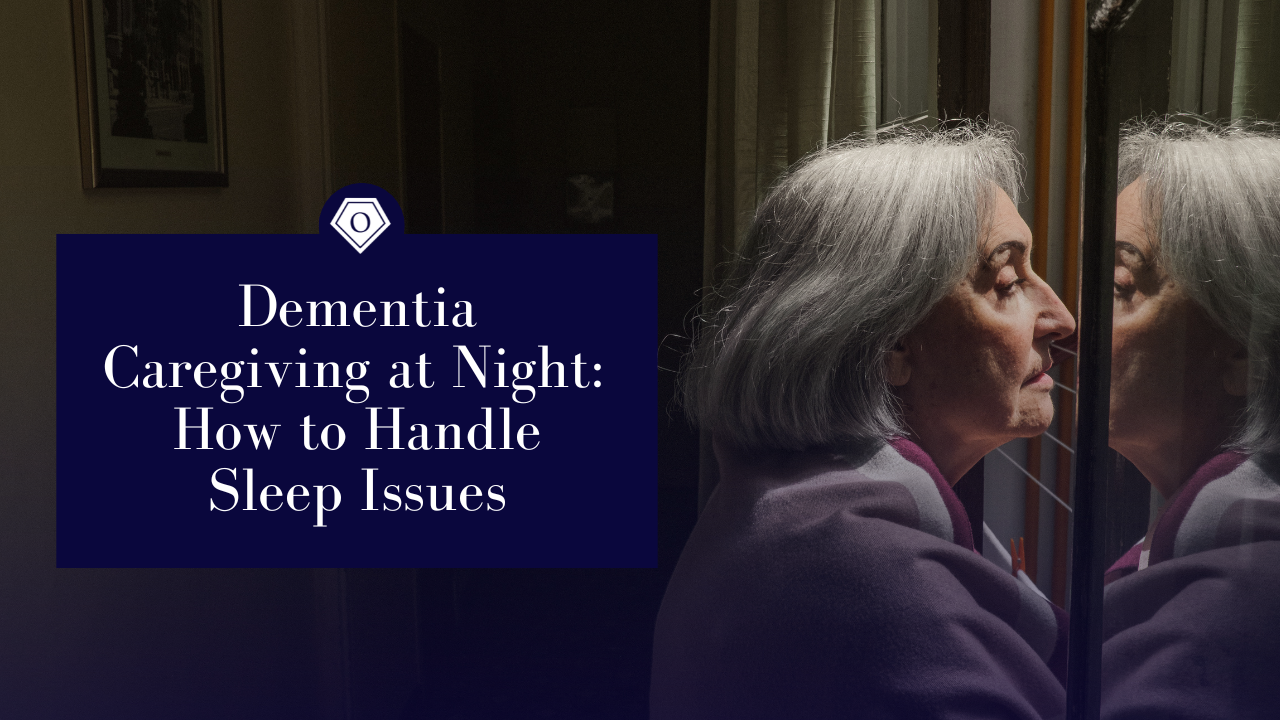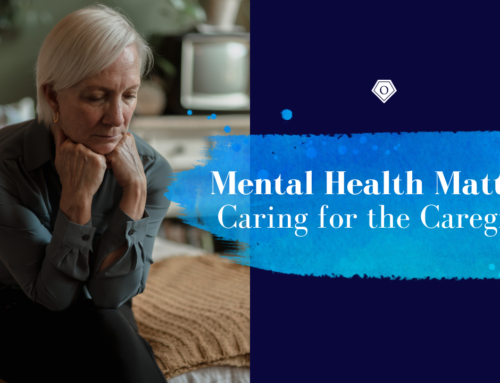Caring for a loved one with dementia presents challenges at all hours, but nighttime can be particularly difficult. Many individuals with Alzheimer’s or other forms of dementia experience sleep disturbances, sundowning, and nighttime wandering, which can make it difficult for family caregivers to get the rest they need.
For families in Daytona Beach and Volusia County, understanding why dementia affects sleep and how to create a structured nighttime routine can significantly improve both the caregiver’s and the patient’s well-being.
Why Dementia Disrupts Sleep
Dementia affects the brain’s ability to regulate circadian rhythms, which control the sleep-wake cycle. As a result, individuals with dementia often experience:
- Difficulty falling or staying asleep
- Increased confusion or restlessness at night
- Reversed sleep cycles, leading to daytime drowsiness and nighttime wakefulness
- Frequent waking, wandering, or disorientation
One of the most common and challenging symptoms associated with dementia is sundowning syndrome, which causes increased confusion and agitation in the late afternoon and evening. Managing these symptoms effectively requires a combination of structure, environmental adjustments, and professional support when necessary.
Understanding and Managing Sundowning
Sundowning occurs when individuals with dementia become anxious, confused, or restless as the sun sets. This can lead to pacing, agitation, hallucinations, and difficulty recognizing their surroundings or loved ones.
Strategies to Reduce Sundowning Symptoms
-
Increase Daytime Activity
- Encourage outdoor walks and light exercise during the day to regulate the sleep-wake cycle.
- Engage in cognitive activities such as puzzles, music, or simple tasks to keep the mind active.
-
Limit Stimulants and Naps
- Reduce caffeine and sugar intake in the afternoon and evening.
- Keep naps brief and avoid long periods of daytime sleeping, which can disrupt nighttime rest.
-
Adjust Lighting to Support the Sleep Cycle
- Keep the home well-lit during the day to reinforce natural wakefulness.
- Use dim, warm lighting in the evening to help transition to bedtime.
- Install motion-sensor nightlights to prevent disorientation if they wake up at night.
-
Provide Comfort and Reassurance
- Use a calm and reassuring voice if agitation occurs.
- Keep familiar objects, such as blankets, photographs, or soft music, nearby to create a sense of security.
Creating a Calming Nighttime Routine
Establishing a structured and consistent nighttime routine can help signal to your loved one that it is time to relax and prepare for sleep. A predictable schedule helps reduce anxiety and restlessness.
Sample Nighttime Routine for Dementia Care
6:00 PM – Light Dinner and Hydration
- Serve a light, easy-to-digest meal in the early evening.
- Avoid excessive liquids before bed to minimize nighttime trips to the bathroom.
7:00 PM – Quiet and Relaxing Activities
- Engage in low-stimulation activities such as listening to soft music, reading, or simple conversations.
- Avoid television or bright screens, as these can be overstimulating.
8:00 PM – Warm Bath or Relaxing Shower
- A warm bath can help relax muscles and signal bedtime.
- Use soft towels and dim lighting to create a peaceful atmosphere.
8:30 PM – Preparing for Sleep
- Encourage the use of comfortable pajamas and soft bedding.
- Ensure the bedroom is dark, quiet, and at a comfortable temperature.
9:00 PM – Bedtime and Reassurance
- Tuck your loved one into bed with familiar objects nearby.
- Consider playing soft instrumental music or a white noise machine to create a calming environment.
When to Seek Professional Help for Nighttime Dementia Care
If sleep disruptions become overwhelming, professional in-home care may be a solution. Home health caregivers can provide:
- Overnight monitoring to prevent wandering and ensure safety
- Assistance with bedtime routines and personal care
- Respite care for family caregivers who need rest
At Onyx Home Care, we provide dementia care services in Daytona Beach and Volusia County. Our experienced caregivers offer overnight assistance, sundowning support, and 24/7 monitoring to help families feel more at ease.
If you need professional help managing nighttime dementia care, contact us today for a consultation.
Managing dementia-related sleep issues can be challenging, but a structured routine, a calming environment, and the right support can make a significant difference. By understanding the impact of dementia on sleep and making small adjustments, caregivers can improve their loved one’s nighttime experience while also ensuring their own well-being.
For more expert advice on dementia care, follow our blog or reach out to our team for personalized support in Daytona Beach and the surrounding areas.
Dementia & Alzheimer’s Care
Onyx Home Care’s neurological disorder care is built around a system of support. This service includes skilled home care as well as a unique program that centers on the patient’s interests and stage of illness. Our goal is to see happy family members, patients and caregivers. Often times, caregivers feel remote. Our team includes each person in the home care process to provide inclusive care that helps the patient thrive.






